During the late aughts, the classical dessert repertoire of vanilla crème brûlée and chocolate soufflé ended. Ambitious pastry chefs featured fennel, tarragon, microwave sponge cakes and explored molecular techniques that transported desserts into experimental territory. Where such culinary wanderings may have been tolerated in the savory kitchen, food critics did not hold sweet alchemy in similarly high regard. Adam Platt, New York magazine’s restaurant critic, declared in 2014 that we were dining in “the dark age of dessert”. In response, Sierra Tishgart interviewed both savory and pastry chefs to write an insightful piece that questioned the economic viability of pastry departments. Years later, as restaurants continue to trim their pastry departments, citing increased labor costs, it feels as though pastry chefs continue to live a marginalized existence in the kitchen sphere.
It wasn’t until I watched Twenty Feet from Stardom, the soul-stirring documentary about backup singers, that I noted the parallels between the rousing voices in the background and the anonymous hands that shape the sweet finales of every meal. Most professional kitchens still follow the European brigade system which thrives on rigid hierarchy and places the executive chef at the helm of the kitchen. In this context, pastry chef Michael Laiskonis’s blunt assertion makes sense: “The curse of the pastry chef is having to follow someone else.” That someone else is the savory menu which is billed as the restaurant’s raison d’etre.
According to the tagline, “Millions know their voices. No one knows their names.” In Twenty Feet From Stardom, we finally learn the names of the unnamed. As we meet them, we also bear witness as to why the leap from microphone to spotlight didn’t materialize for voices that could clearly hold their own. Sometimes it was racism. Sometimes it was bad timing. Towards the end of the documentary, The Waters’ family, who appeared on Michael Jackson’s Thriller, lamented that they didn’t devote more time to their own musical talents because they were too busy singing on everyone else’s records. Perhaps it was this unwillingness to be overshadowed that inspired Rory MacDonald to helm Dessert Bar, an all-sweets tasting menu restaurant that joins the ranks of similarly themed ChikaLicious and Dominique Ansel’s U.P.
Even when the work of a pastry chef is well-received, there is still an organizational undercurrent of ‘dessert is a nice accent but people don’t really want it’ so we don’t need it. The other refrain that I’ve heard among restaurateurs is that pastry is a money-losing proposition. (Indeed, that was the argument used to eliminate the pastry position at my previous gig and ironically is the reason why I teach the cooks to make the restaurant desserts in my current position, as opposed to hiring a team of pastry cooks.) Percentage wise, desserts compose a smaller portion of the overall food revenue but it’s an unfair comparison on many levels, chiefly because most of the output of the pastry kitchen is given away for free (petit fours at the end of the meal, celebratory desserts for birthdays and anniversaries, the complimentary bread basket). It’s like saying we can shorten a song to increase the radio airplay by getting rid of the hook because it’s only two lines.
This seems like a leap in logic, but bear with me. Many iconic songs are distinctive precisely because of the hook, the catchy chorus often sung by session singers, the unsung and mostly African-American female voices that shaped the identity of music’s most iconic songs. “Do, do, do…” as sung in Lou Reed’s “Walk on The Wild Side”. “All night, we are the young Americans” as sung in David Bowie’s Young Americans. Though uncredited, it was the subtle artistry and powerful mastery of these voices that ‘made’ the songs. Imagine The Rolling Stones’ apocalyptic “Gimme Shelter” without Merry Clayton singing “Rape, murder, it’s just a shot away, it’s just a shot away”. Without the haunting depth of her banshee howl, it wouldn’t be much of a song. Similarly, the uncredited contributions of pastry departments often distinguish highly regarded restaurants from those that barely pass the muster of a one-star review.
‘Uncredited’ is also one way to describe the Phil Spector era of the 1960s. While the era was known for his Wall of Sound and innovative use of ‘the studio as instrument’, it was also an era notorious for “ghosting” in which background singers sang the vocals on recordings for marquee artists who would then be credited and lip-synch during live performances. “Ghosting” also happens in the kitchen, where whether deliberate or inadvertent, chefs are often credited for desserts that were conceived and executed by their—usually female–pastry chefs. On the surface, it’s a mindless omission but such a move undermines both the visibility and viability of pastry chefs in an oversaturated culinary industry that thrives on ‘the chef as brand’.
As Bruce Springsteen elaborated, you need narcissism and ego to make the leap from behind the microphone to front and center stage and there is no shortage of either in the kitchen. In fact, it’s the bombastic (and mostly male) egos at the kitchen pass that history remembers. Whether it is cause or consequence, there’s a lot of drama that comes with being a solo artist. Just ask Francois Payard. The award-winning pastry chef, formerly of Restaurant Daniel, left to open his namesake bakery patisserie which enjoyed a decade long run on the Upper East side of New York city. He then moved on to open his own chain of patisseries that closed amidst the bankruptcy of its parent company. After relationships with his investors and colleagues soured, celebrated pastry chef Will Goldfarb closed his dessert-centric restaurant in New York city and moved to Bali. He has since opened another iteration of his dessert-centric Room 4 Dessert, published a long-awaited cookbook, and been featured on Chef’s Table.
But not everyone wants to be like Sheryl Crow, the multi-platinum Grammy-winning singer who started as a background singer for Prince. Lisa Fischer, the Grammy-winning singer who returned behind the microphone when a sophomore album failed to materialize, found legendary success working with Luther Vandross until his death in 2005 and as the lead female vocal on Rolling Stone tours for almost 30 years. I’m sure there is no shortage of investors who would line up to open a pastry shop with Michael Laiskonis, the former pastry chef of Michelin-starred Le Bernadin in New York City but he seems very content in his role as pastry consultant and creative director at The Institute of Culinary Education and The Chocolate Lab even as he is now involved in Recolte Dessert Bar.
Successful background singers flourished when rock ‘n’ roll bands gave them the freedom to sing as they felt, rather than chaining them to a musical script. It was a step forward, even as David Bowie later admitted that musicians welcomed such voices because it made artists seem ‘blacker’. In the pastry kitchen, perhaps we need to look beyond the script of what’s expected of us. In the Nov 2018 issue of T Magazine, Rebecca Marx described the creative ways that pastry chefs have had to do more with less as their ranks dwindle in restaurant kitchens. Other pastry chefs still embrace the pastry but have left the kitchen altogether. In between running marathons, pastry chef Carolyn Schiff now runs a successful consulting business after many years in restaurant kitchens. Jenny McCoy, former pastry chef and cookbook author, moved onto a successful teaching career. Nancy Silverton left the pastry kitchen decades ago, sold her bread business (La Brea Bakery) and is now a thriving restaurateur in one of the most difficult economic climates for food businesses. Then there’s Brooks Headly, former pastry chef at Del Posto, who now owns and operates Superiority Burger, a vegetarian food joint in the East Village of New York City, and author of two vegetarian cookbooks.
Though my work remains largely uncredited, it does not go unnoticed when diners enjoy the buckwheat blini and caviar canapés before dinner, the farro crisps and seeded multigrain sourdough with their cheese course, the pumpkin mousse with brown butter caramel for dessert, or the gift of salted buttercrunch toffee and cassis pate de fruit presented with the check. When I’m standing twenty feet from the pass, it’s not because I’m not worthy of standing at the pass. It’s because I’m already there.
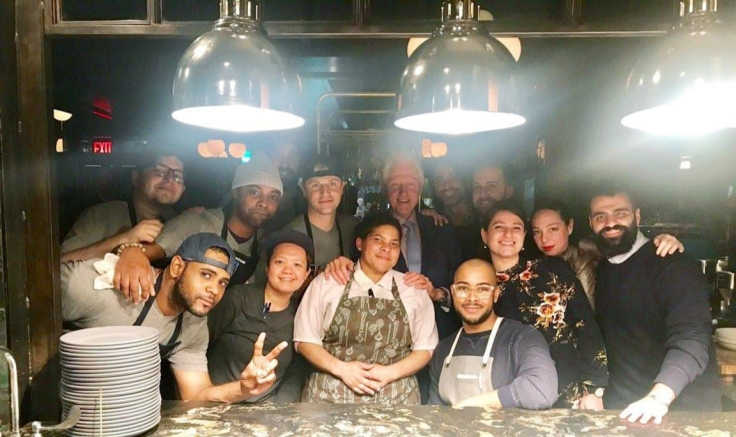
Reviews of the author’s work.
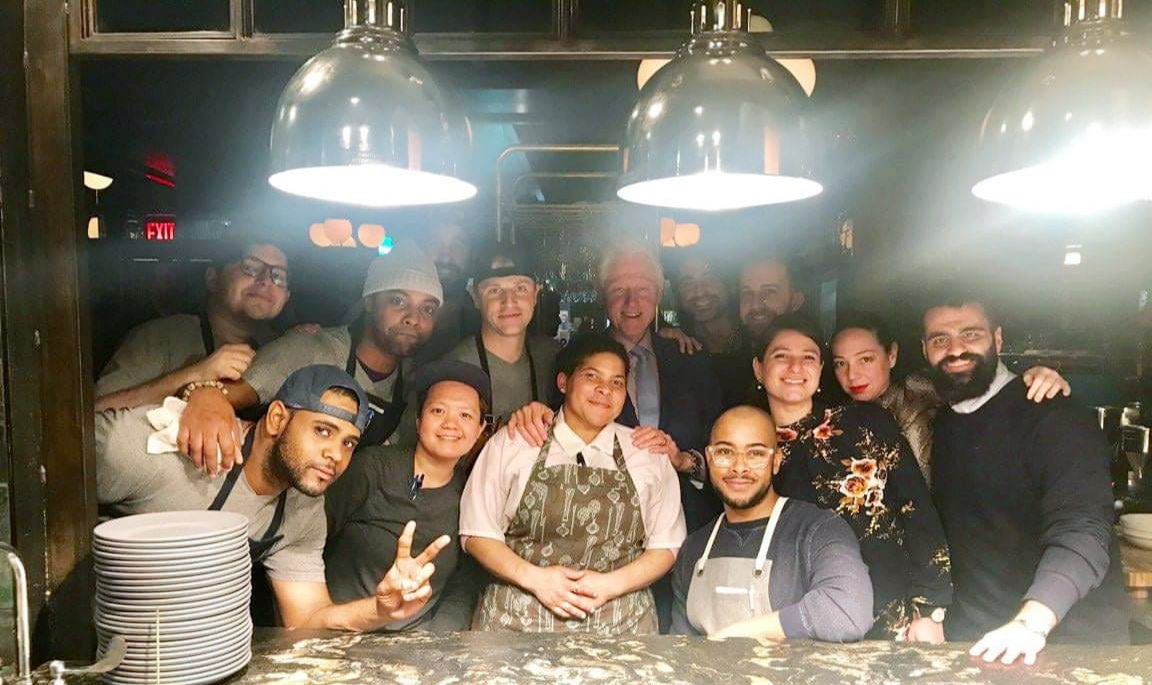
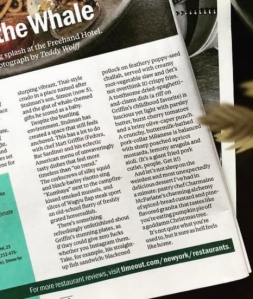
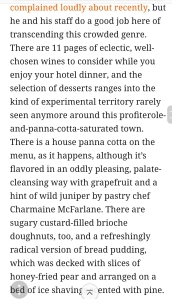
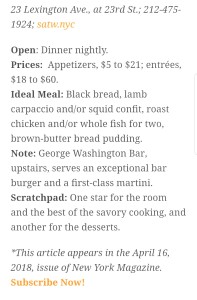
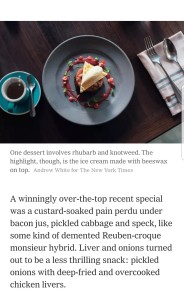
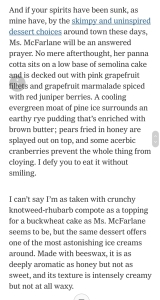
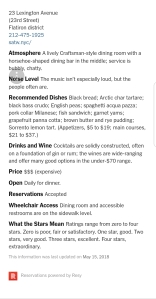









Leave a comment